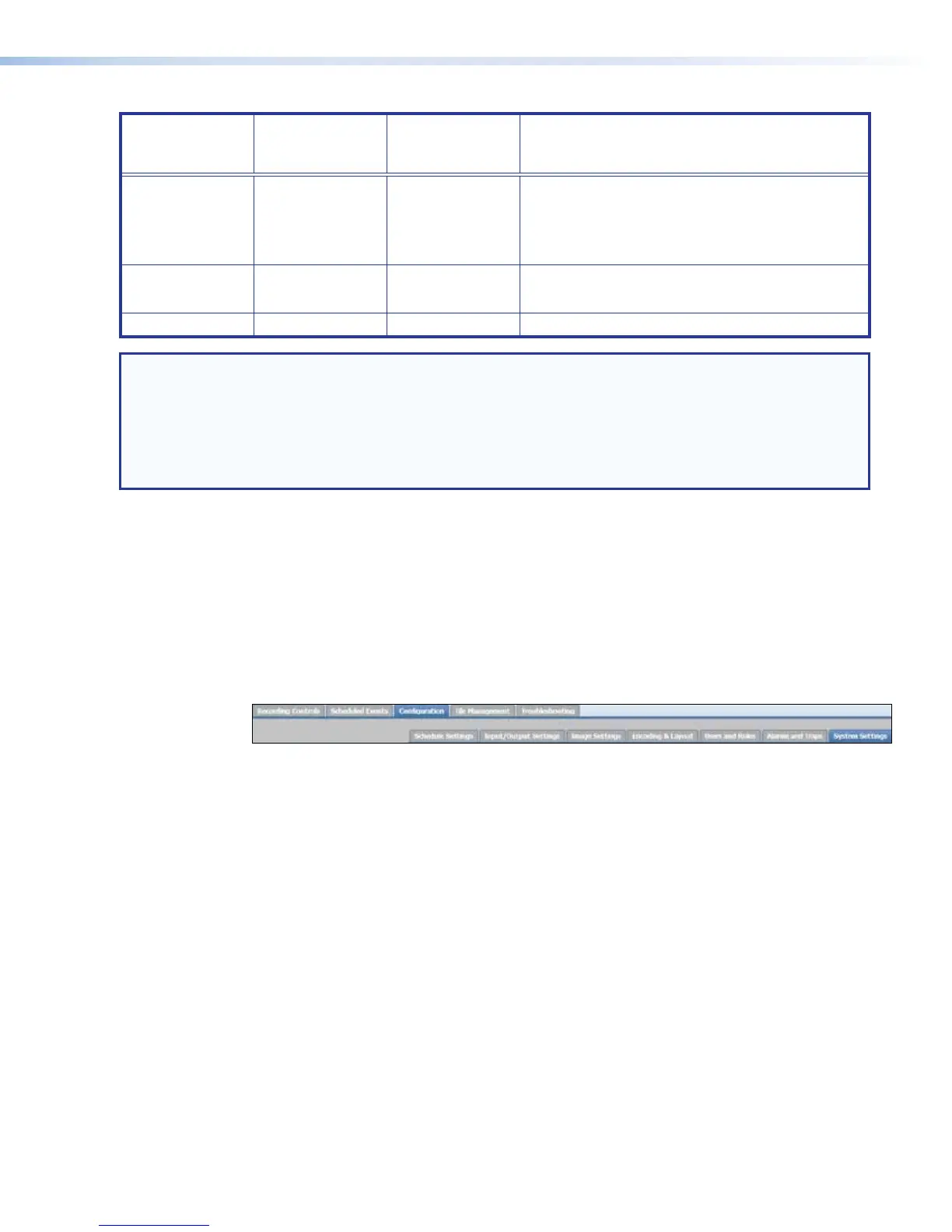Alarm Priority Alarms and
Traps Severity
Level
Troubleshooting
Log Severity
Level
Comments
High Notify Alert • Sends an e-mail to the specified recipient when
the alarm is triggered
• Displays the alert on the SMP351 front panel.
• Logs the alarm condition.
Normal Display Notice • Displays the alert on the SMP351 front panel.
• Logs the alarm condition.
Low Log Info • Logs the alarm condition.
NOTE: If internal storage space is nearly full (at the point when the disk space alarm is triggered) and the
SMP351 is set up to automatically upload recordings to a server (see Setting the default recording
destination on page117 and Scheduling with an Opencast server on page71), then the
SMP351 uses an automatic disc cleanup feature to make room for new recordings. As needed, the
unit automatically deletes previous recordings that have been uploaded to a server, starting with the
oldest recordings, until there is enough free space on the disk (see Automatic Recording Deletion on
page134).
System Settings
Controls within six of the nine panes in the System Settings page within
Configuration are essential during initial setup of the unit. The three other panels
contain features that are used infrequently for updating the unit, restoring a configuration, or
limiting access to front panel controls. A user must be logged in as an administrator to see
or change these settings.
To open this page, click the Configuration tab at the top of the SMP351 embedded
Web pages and then click the System Settings tab on the second tier of tabs.
The System Settings page opens. It features nine panes, each with its own panel:
• Unit Identification – Set the system (unit) name and a descriptive name for its location.
• Date and Time – Set the date, time, time zone, and settings for syncing with one or
more NTP (network time protocol) servers.
• Networking – Set the IP addresses for the unit, gateway, and DNS server, as well as
the subnet mask and port numbers for a variety of port types.
• Default Recording Destination – Choose where a recording is saved during its
creation, select the protocol for uploading presentation recordings to a server, configure
settings for the default FTP server, and test the connection.
• Default Recording File Names – Choose the type of information used to compose
names of recordings.
• Serial – Set the mode of use, baud rate, and protocol for the rear panel remote control
serial port.
• Firmware Loader – Upload firmware to the unit.
• Backup and Restore – Upload a previously-saved configuration file to the unit.
• Executive Mode – Enable or disable various levels of front panel lock-out to limit
access to the controls and functions of the SMP351.
SMP351 • Web-Based User Interface 112
